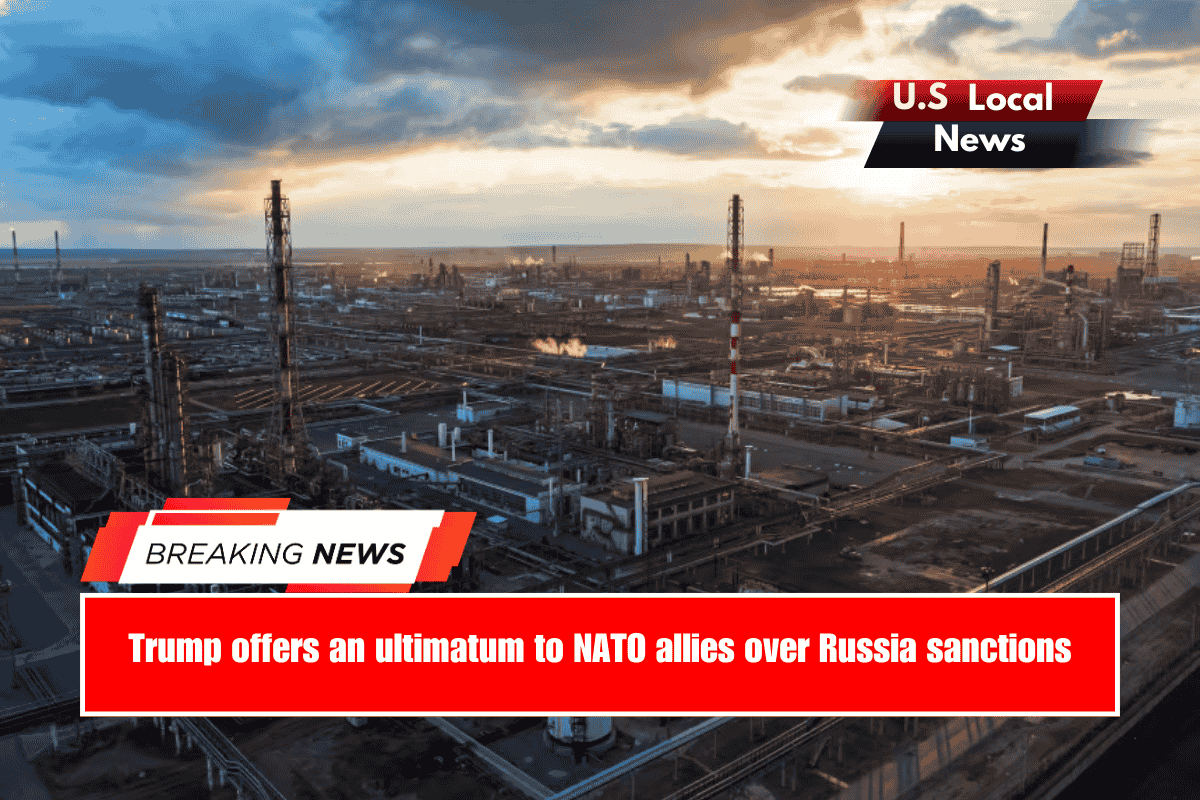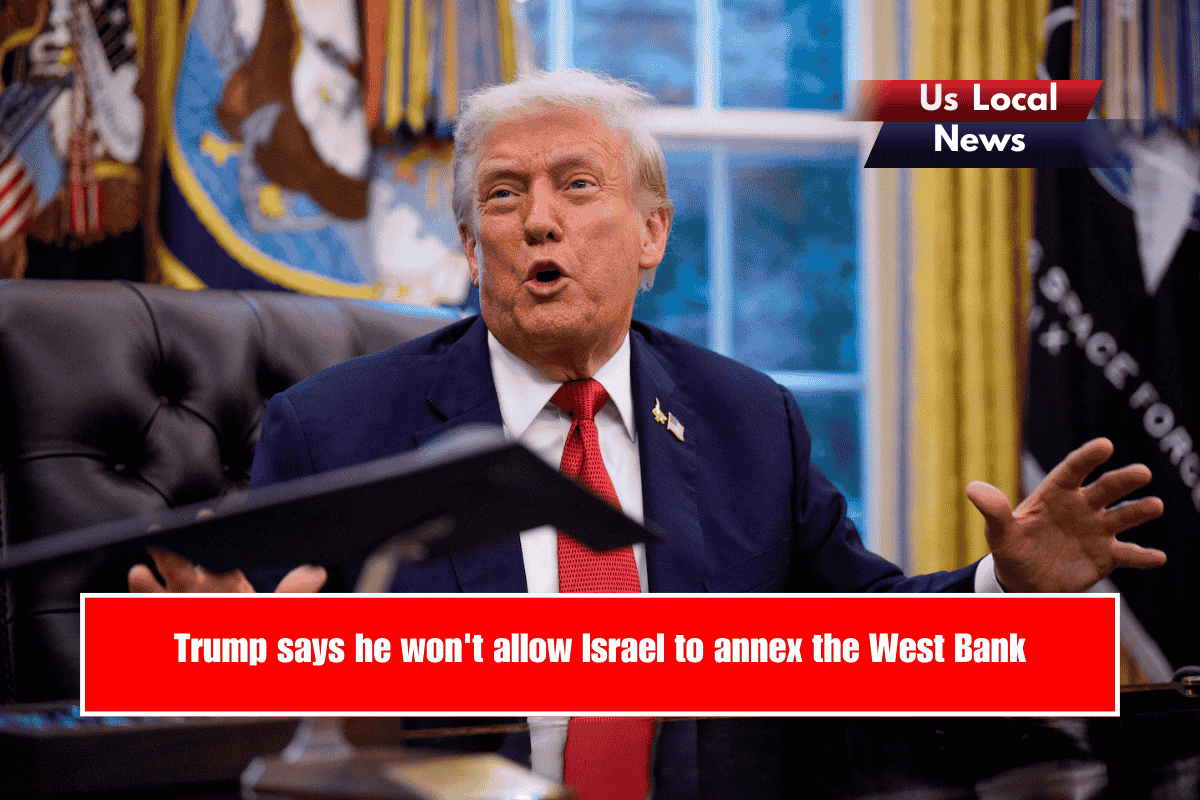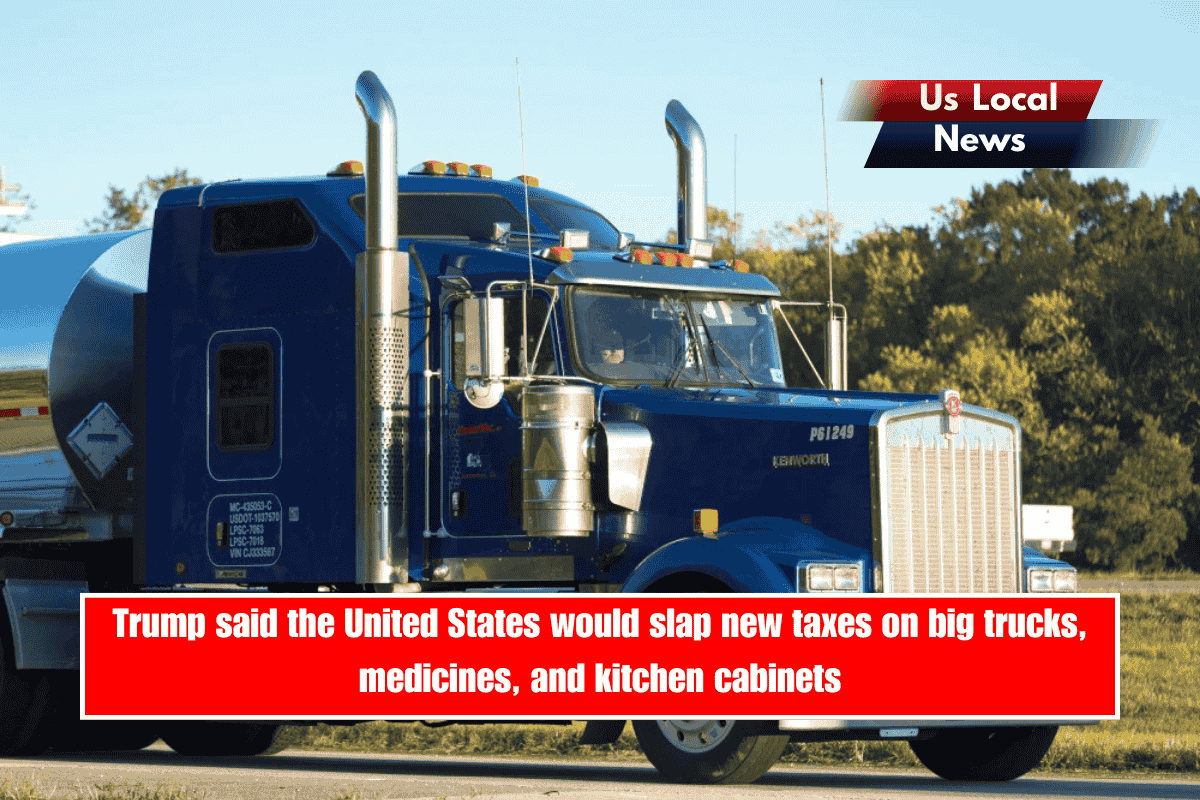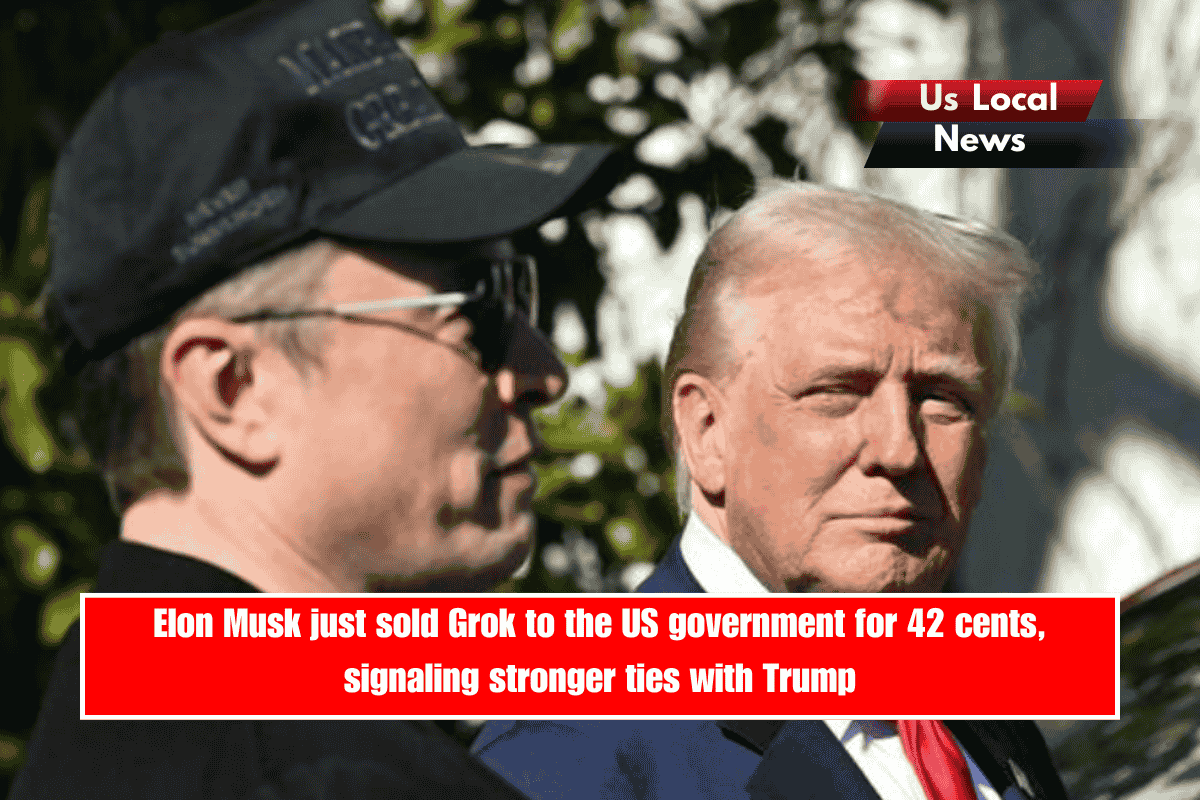President Donald Trump issued an ultimatum to NATO allies in a letter on Saturday, stating that the US will impose “major” sanctions on Russia only if they agree to do the same and stop buying Russian oil.
Meeting Trump’s demands would represent a significant shift in the alliance, and there are serious concerns about whether there would be a shared interest in taking these actions.
“I am ready to impose major sanctions on Russia when all NATO nations have agreed and begun to do the same thing, and when all NATO nations STOP BUYING OIL FROM RUSSIA,” he said in a social media post, citing what he said was a letter sent to his NATO counterparts.
He went on to say, “As you know, NATO’s commitment to WIN has been far from 100%, and some have purchased Russian oil, which is shocking! It significantly weakens your negotiating position and bargaining power with Russia. Anyway, I’m ready to ‘go’ whenever you are. “Just say when?”
The president also urged NATO members to significantly increase tariffs on China in a show of force.
“I believe that this, plus NATO, as a group, placing 50% to 100% TARIFFS ON CHINA, to be fully withdrawn after the WAR with Russia and Ukraine is ended, will also be of great help in ENDING this deadly, but RIDICULOUS, WAR,” said the American diplomat.
Trump also stated that if those steps were taken, Russia’s war in Ukraine would be “quickly” ended.
According to CNN, the European Union has banned maritime Russian oil imports and refined oil products such as diesel, but many countries continue to import Russian fossil fuels and liquefied natural gas.
The president has previously hinted at additional sanctions against Russia, telling Fox News’ “Fox & Friends” on Friday that he is considering “hitting very hard with sanctions to banks and having to do with oil and tariffs also.”
He has already increased tariffs on India, which buys oil from Russia, to 50%, and acknowledged on Friday that the move “caused a rift” with the country. India has claimed that the tariff increase is unfairly targeted against it, calling it “unjustified” given that other countries do business with Moscow.
It’s unclear whether NATO countries will take these steps, which would be a significant departure from their current tariff policies.
According to people familiar with the conversation, when the president spoke with an EU delegation earlier this week, he pushed them to impose tariffs of 50-100% on both China and India. Notably, Trump’s message to his NATO counterparts on Saturday made no mention of India. The EU is in the final stages of negotiating a trade agreement with India, so they were unlikely to agree to that.
Before Moscow’s full-fledged invasion of Ukraine, Russia was the EU’s largest supplier of petroleum. The EU has since banned maritime Russian oil imports, as well as refined oil products such as diesel. As a result, oil imports into Europe fell to $1.72 billion (1.48 billion euros) in the first quarter of 2025, down from $16.4 billion (14.06 billion euros) in the same quarter of 2021, according to Eurostat data.
Since 2021, the EU has slightly reduced Russia’s market share of liquefied natural gas imports, dropping from 22% to 19% in 2025, while significantly increasing the US market share.
And the bloc, which has partnered with the US in sanctions against Russia, imported $41.9 billion (36 billion euros) of goods from Russia in 2024, according to data from the EU’s statistics agency.
European officials said last week, following the Trump meeting, that new tariffs on China or India were unlikely because that is not how they approach tariffs, and the Europeans have historically been more cautious in trade wars, particularly with China.
By issuing his Russian oil ultimatum to NATO rather than the EU, Trump includes Turkey, the third largest purchaser of Russian oil after China and India, in his demands. The EU has largely cut off oil purchases, with the exception of Hungary and Slovakia, but Turkey remains a customer, underscoring the high demand.
Momentum to end the war has largely stalled since Trump’s August 15 meeting with Russian President Vladimir Putin in Alaska, and Trump’s most recent demands risk prolonging the conflict even further. Time is a valuable commodity for Putin, allowing Russia to make more battlefield gains and consolidate control over occupied territories.
Russia shows no signs of de-escalation
Meanwhile, Russia shows few signs of wanting to deescalate the situation.
Romania’s defense ministry said it intercepted a drone that crossed into its airspace while Russia attacked Ukraine on Saturday.
Two F-16 fighter jets detected the drone while monitoring the air situation near the Ukrainian border, where Russia was conducting aerial attacks.
The Romanian pilots tracked the drone until it disappeared from radar about 20 kilometers southwest of Chilia Veche, a community on the Danube River near the Romania-Ukraine border.
The drone did not fly over populated areas or pose an immediate threat to the population, according to the ministry, which added that teams are prepared to search for any debris from the device.
According to Ukrainian President Volodymyr Zelensky, the drone was in NATO airspace “for around 50 minutes.”
“The Russian military knows where its drones are going and how long they can stay in the air. Their routes are constantly calculated. This cannot be a coincidence, an error, or the work of some lower-level commanders. “It is an obvious extension of the war by Russia,” Zelensky wrote on X.
The interception in Romania comes after a significant incursion of Russian drones into Polish airspace earlier this week. Following the incident, NATO announced the launch of an operation to strengthen the security of its eastern flank. Trump told reporters at the White House on Thursday that the move “could have been a mistake, but regardless, I’m not happy about anything related to that whole situation, but hopefully it will come to an end.”
And Secretary of State Marco Rubio stated emphatically on Saturday that the incursion into Poland was a “unacceptable, unfortunate, and dangerous development,” adding that the US is still determining whether the drones were intended to enter NATO airspace.
“This shouldn’t happen. I don’t think anyone is happy to see this happen. You saw NATO respond appropriately. “We don’t want to see it happen again,” Rubio told reporters as he prepared to leave for Israel.
CNN has contacted the White House for comment on the incursion into Romania.
Drone strikes in Ukraine’s border regions prompted Poland’s armed forces to launch aviation operations. The operation was “preventive in nature,” according to the Polish Armed Forces’ Operational Command.
According to Poland’s aviation agency, operations at Lublin Airport were temporarily halted while the aircraft were being deployed.
Zelensky claimed that Russian drones entered Ukraine via Belarusian airspace on Saturday.









